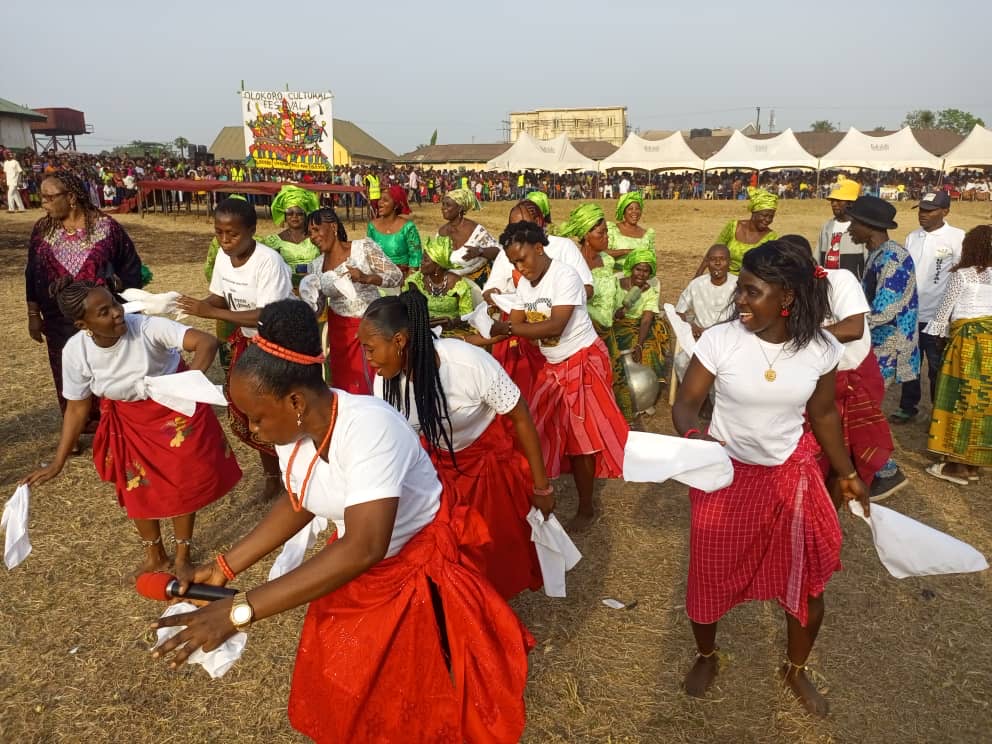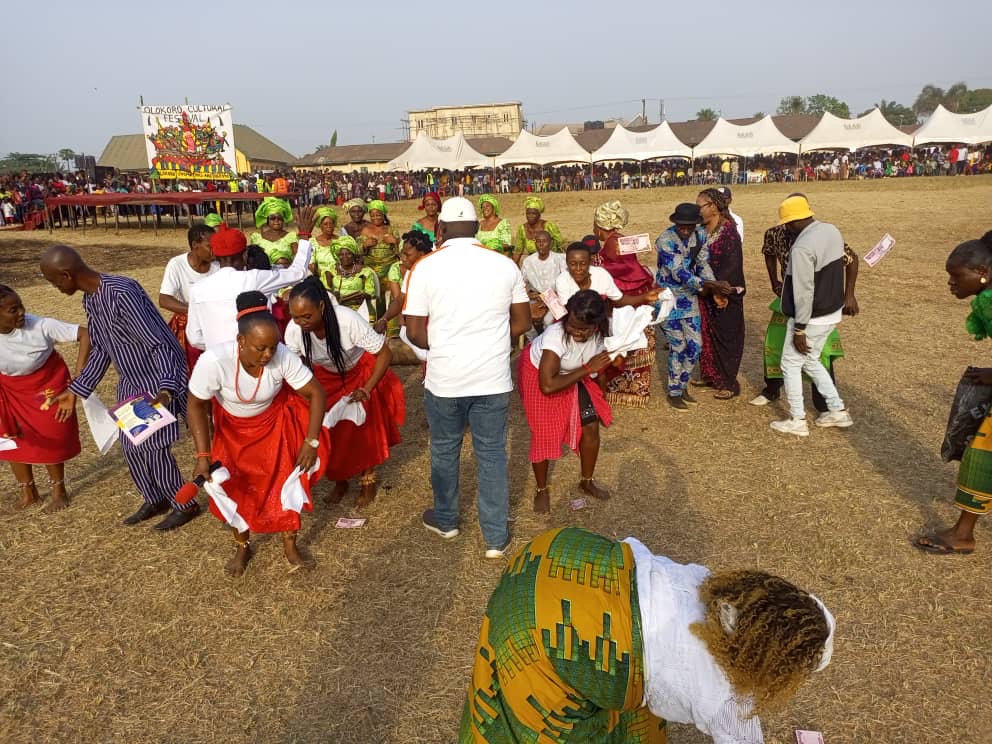

OUR VISION
Olokoro Clan, one of the five Clans that made up of the present day Umuahia, is situated in Umuahia South L.G.A. It is bounded to the North by Ibeku Clan, to the East by Oboro Clan, to the South by Northern Ngwa and to the West by Ubakala Clan. Clan is not endowed with large expanse of uninhabited land for modern commercial cultivation but has enough land for subsistence agriculture which sustained the indigenous Olokoro people. The Clan is spotted with freshwater springs and streams but none of them is large enough for commercial fishing.
Traditional Olokoro Clan comprises fifteen (15) Villages. However, the history of the origin, migration, and settlement of Olokoro people like most pre-colonial Igbo societies, pose a lot of difficulties for research scholars. These difficulties arose from the fact that there were no much written documents about the origin of our people, rather, much facts were derived from oral tradition on when Olokoro people arrived in their present land. So, in treating the tradition of origin of Olokoro people, we will adopt three major testimonies viz:
** That Olokoro people were originally from where they found themselves and therefore did not migrate from any other place. God (Chukwu) created a man called Chukwu Uvuoma. He had a son called Olokoro and Olokoro himself had three sons called Towe, Epe and Azu. It was the grandsons of Olokoro who founded the fifteen villages which made up the Olokoro Clan.
** That Olokoro people migrated from Arochukwu in the present day Arochukwu L.G.A, in Abia State. Legend had it that a man name Chukwu Uvuoma whose ancestral home was located at Arochukwu migrated from Arochukwu and settled in the present territory now called Olokoro.
** A modified version of the above belief holds that Chukwu Uvuoma came with a woman called Nwanyi-Afor who lived with him and eventually became the mother of Olokoro. That Nwanyi-Afor was later defiled. This account explained the reason why Afor day was and still held sacred by the Olokoro people. Legend had it that Olokoro landscape was thickly forested and uninhabited when Chukwu Uvuoma arrived there. He cleared a spot where he built his house.
** Another source maintained that Chukwu Uvuoma lived in a place called Egwu in Avonkwu land within Ahiaukwu and he had his first and only son called Olokoro. From there, Olokoro started its expansion with the birth of the three sons namely: Towe, Epe and Azu. Legend had it that Towe had two wives: one of his wives was the mother of Oparaozara Amuzu, Itaja and Agbama. These sons of Towe found the villages of Umuoparazara, Amuzu, Itaja and Agbama respectively. The second wife of Towe had also three children who founded Avonkwu, Itu and Okwu. These seven villages founded by the seven sons of Towe are located at the Eastern part of Olokoro currently called Umutowe.
The second son of Olokoro called Epe had five sons namely Dere, founder of Umudere, Ajata founder of Umuajata, Uzi founder of Amizi, Ngwo founder of Amangwo village and Ntu, founder of Umuntu village. This may explain why Epe group of villages regard themselves as Umunna too.
** Legend further had it that Azu the third son of Olokoro, had three sons, Obia, founder of Umuobia, Kama founder of Amakama and Ezeala founder of Umuezeala (now Old Umuahia). These three villages just like Epe and Umutowe were called Azuiyi which legend had it that they were originally called Umuazu. According to Edo M.U. (2015:4), Iyi was added because he crossed the stream and settled on the opposite bank with his sons. Presently, the descendants of Obia, Kama and Ezeala still occupy the territory (source Edo M.U. 2015, J. U.J Asiegu 20) et al
On the whole the following villages existed as descendants of Olokoro, born
by Chukwu Uvuoma before the creation of the present Autonomous Communities: Amuzu, Itaja, Avonkwu, Agbama, Itu, Okwu, Umudere, Umuajata, Amizi, Amangwo, Umuntu, Umuobia, Amakama and Umuezeala (a.k.a Old Umuahia). It is necessary to recall that it was two Traditional Rulers that ruled Olokoro within this era. Whereas HRH Eze J.O.J Ogbulafor (OON) Ovuoma 1 had dominion over 14 villages. HRH Eze Macdonald Uche Wogu (Nnayerugo) 1) reigned over one village – Umuezeala (Old Umuahia) which obtained her autonomy earlier before other Autonomous Communities. Old Umuahia Autonomous Community presently is divided into two Autonomous Communities namely: Old Umuahia Elu-Elu and Old Umuahia Ala-Ala.
May I emphasis here, that it was during the regime of Orji Uzor Kalu (May1999 – May 2007), that the policy of dividing various Clans in Abia State into Autonomous Communities was introduced. This was the circumstance that led to the upgrading of villages in Olokoro into (17) seventeen Autonomous Communities. It may not be out of place to indicate here that some Clans in Abia State rejected the policy. Arochukwu is a good example.
ADMINISTRATIVE ORGANS OF OLOKORO CLAN
The people of Olokoro Uvuoma are governed by various organs which includes the
following, Olokoro Clan Development Union, Council of Traditional Rulers, Uvuoma Chiefs, OCDU Women Federated, OCDU Youth Wing, Okonko Society, Udo Obodo Women, President Generals of various Autonomous Communities (men and women Federated Wings), Chairmen / Chairpersons of various Autonomous Communities Apart from the Council of Ndi Eze whose tenure is for life, unless removed for misconduct, other offices are elected on the expiration of each tenure. Besides the above listed administrative organs of Olokoro Clan, the Uvuoma has Some Other formidable Pressure Groups that add voice to the administration of Olokoro Clan. These are Olokoro Progressive Association (OPA), Uvuoma Social Club, Ugwu Uvuoma Association, Onwa Olokoro, Kings Club of Olokoro, Olokoro Professional Forum among others.
The OCDU which is the umbrella body of Olokoro Clan, has branches all over Nigeria and in diaspora. Visibly among these are Umuahia Township, Owerri, Aba Port Harcourt, Onitsha, U.S.A, London, Canada, Italy, Belgium, Germany etc. Meanwhile, it is an incontrovertible fact that Olokoro belongs to all of us. Consequently, it is our duty to ensure its development. Accordingly, the Sons and Daughters of Olokoro are kindly invited to contribute ideas and ways forward in this website. Note: “ Above information is directly from Olokoro Clan Development Union website”.


